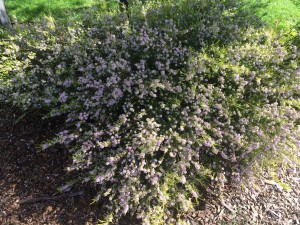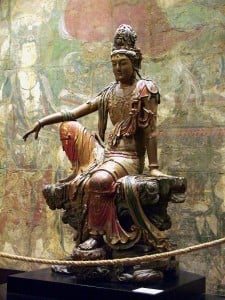I attended my first Unitarian Universalist Church of the Larger Fellowship on-line worship service yesterday. Today I woke up smiling and motivated. I was out of a two week funk. The forty-seven minute service involved a video with music and a message. In the chat room ministers and lay ministers lead participants in responses and encourage us to share, during the service, the words that call to us. This particular service continued the month’s theme of salvation and focused on Martin Luther King, Jr. I was filled with joy as we shared words of “justice” “peace is a means” “hope” “I carry the chalice” and in reply to a song about how many stones can build an arch people replied with “stones of hope”. We listened to music and shared our sorrows and joys. Though I was sitting alone in my home office, I shared a deeply moving experience with people from around the world. We were a community.
The minister said “We come together for a moment out of time in a place that is nowhere but holy. To seek what is deepest and most true. To know the beauty of our own heart’s longing and to care for each other. Our common chalice is now lit.” I did feel a sense of connectedness beyond timezones and distance.
Unfortunately these services are not close-captioned for the Deaf or hard of hearing and it doesn’t make sense that members would be left out of a Larger Fellowship. But I digress from the point of this post.
A deep sense of community builds solidarity. Gathering is one way to sustain a community. People can gather and have a meaningful experience on-line.
The first on-line rituals that I know of began in private IRCs (Internet Relay Chats) and they were organized through various on-line forums in the late 80s and early 90s. This was when the Internet was mainly text and computers were either a black or green screen with white lettering. At the time I was involved with the Pagan group at Southeast Missouri State University which held some private and some public rituals. So I wasn’t in a secluded area and neither was I invited to the rituals since I hadn’t been a member of the occult or Pagan IRC community or channels for long. I only heard about the on-line rituals after the fact from the band Elven Drums http://www.elvendrums.com/ or in snippets of IRC chatter.
In 2004, my husband and I moved to Santa Cruz, California. You would think there were lots of Pagan groups in central California for me to join. Only two were public however and the other covens, such as the Faery Tradition, guarded their privacy well. Their magic could be felt rising on the nights of the full and dark moon but it was explained to me that since their work was so intimate it took a long time for anyone to be accepted.
I didn’t know it at the time, or maybe I did and didn’t want to face it, but I was suffering from PTSD and depression. I became more unsociable so I sought out on-line groups. That’s how I found Moonspells and Shekhinah Mountainwater. She is referred to as the godmother of the goddess movement and the founder of the Womenspirit movement. We were a group of women who met online ever full and dark moon. We would chat for a while then Shekhina would lead us through guided meditations into astral or the fairy realms. Here we explored our deepest secrets, allowed our guides and the goddess in many guises to challenge and comfort us. I found out that Shekhinah lived just a couple of blocks from me and began studying with her in person. I didn’t get to know her for very long. In 2007, she succumbed to cancer.
I’ll be writing more about this tomorrow. I’ll leave you with some words by Teo Bishop. Take the time to read his full post, too.
“Solidarity can become a discipline, like meditation. Seeking to know the feeling and experience of solidarity, to understand how it can be felt among a seemingly disparate, disconnected people, makes possible new awarenesses, new understandings.” Teo Bishop
“How do we make solidarity happen?” guest post on the Wildhunt











